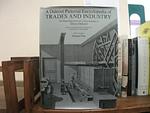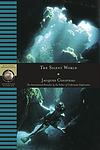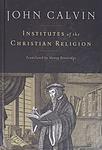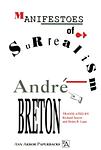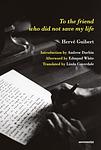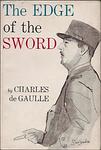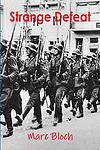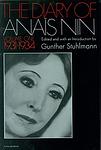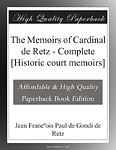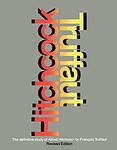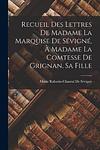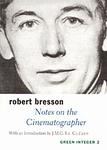The Greatest French "Nonfiction" Books of All Time
Click to learn how this list is calculated.
This list represents a comprehensive and trusted collection of the greatest books. Developed through a specialized algorithm, it brings together 300 'best of' book lists to form a definitive guide to the world's most acclaimed books. For those interested in how these books are chosen, additional details can be found on the rankings page.
Genres
Countries
Date Range
Reading Statistics
Click the button below to see how many of these books you've read!
Download
If you're interested in downloading this list as a CSV file for use in a spreadsheet application, you can easily do so by clicking the button below. Please note that to ensure a manageable file size and faster download, the CSV will include details for only the first 500 books.
Download-
26. Suicide by Emile Durkheim
This classic sociological analysis explores the phenomenon of suicide and its social causes. Written by one of the world's most influential sociologists, this book argues that suicide is more than just an individual decision, but is influenced by social and societal factors. By examining suicide rates among different social categories, the author demonstrates that societal factors such as marital status, religion, and economic stability significantly affect suicide rates. The book is a pioneering work in sociological research, introducing innovative theories and methods that have since become standard in the field.
-
27. Encyclopédie by Denis Diderot
This comprehensive work is a pioneering encyclopedia that aimed to present all the world's knowledge in a systematic and accessible way. It covers a wide range of topics including arts, sciences, crafts, professions, and technology. The book is also notable for its radical and enlightenment ideas, challenging traditional institutions and advocating for freedom of thought. It played a significant role in shaping the intellectual landscape of the 18th century and beyond.
-
28. The Silent World by Jacques Cousteau
"The Silent World" is an autobiographical account of a pioneering oceanographer and his team's underwater explorations. The book documents their adventures and discoveries, including the development and use of the first scuba diving equipment. The author shares his experiences of exploring shipwrecks, interacting with various marine life, and the dangers they faced in the depths of the ocean. The book also emphasizes the importance of marine conservation and the need to protect our oceans.
-
29. Letters On England by Voltaire
The book is a series of essays written in the form of letters that offer a critical examination of various aspects of English society, including its politics, religion, and culture, during the early 18th century. The author, a prominent Enlightenment thinker, contrasts the relative freedom and tolerance he observes in England with the more rigid and hierarchical society of his native country. Through his observations, he praises the English constitutional monarchy, the country's scientific achievements, and its respect for individual liberties, while also reflecting on the nature of trade, the role of the press, and the philosophies of notable English figures. The work is notable for its advocacy of religious tolerance and freedom of thought, and it played a significant role in promoting English ideas to a Continental audience.
-
30. Institutes of the Christian Religion by John Calvin
This book is a comprehensive introduction to Christian theology and doctrine, written during the Protestant Reformation. The text outlines the author's views on subjects such as the nature of God, the authority of scripture, original sin, and salvation through Christ. The book also provides a detailed examination of the Ten Commandments and the Apostles' Creed, while offering a critique of the Catholic Church and its practices. The author's interpretation of Christianity, as presented in this work, has had a significant influence on the development of Protestant theology, particularly within Reformed churches.
-
31. For a New Novel by Alain Robbe-Grillet
"For a New Novel" is a collection of essays by a prominent French writer and filmmaker, where he challenges the traditional norms of narrative and character development in novels. The author argues for a new form of novel, one that focuses more on the objectivity of description and the presentation of things as they are, rather than on the psychological analysis of characters. He criticizes the conventional novel for its reliance on plot, causality, and character development, and instead proposes a novel that is more concerned with the surface of things, their materiality and their presence in space and time.
-
32. Surrealist Manifesto by André Breton
The Surrealist Manifesto is a groundbreaking work that introduces and defines the surrealist movement in literature and art. The book, written by the founder of the movement, presents the idea that the rational mind represses the power of the imagination, weighting it down with taboos. It argues that the world of dreams and the unconscious should be embraced to enhance creativity, leading to more complete and fulfilling human experience. The book also criticizes traditional societal structures and norms, advocating for revolution and freedom of thought.
-
33. The Theater and Its Double by Antonin Artaud
This book is a collection of manifestos, letters, and essays on theatre written by a 20th-century playwright and actor. It advocates for the Theatre of Cruelty, a form of theatre that rejects the comforts of traditional literature and the physicality of dance and pantomime. Instead, it emphasizes the use of symbolism, gesture, and expression to reveal the basest instincts of humanity and the subconscious mind. The author argues that theatre should not be a mere representation of reality but should affect the audience on a deep, visceral level.
-
34. Papillon by Henri Charrière
The book is a memoir that chronicles the harrowing experiences of a Frenchman who is wrongfully convicted of murder and sentenced to life in the penal colonies of French Guiana. Determined to regain his freedom, he makes numerous escape attempts, facing incredible odds and enduring brutal conditions. His indomitable spirit and will to survive lead him through a series of adventures and misadventures, including solitary confinement, a stint in a leper colony, and living with indigenous tribes. Throughout his ordeal, his nickname, derived from the butterfly tattoo on his chest, becomes a symbol of his unyielding quest for liberty.
-
35. The Memoirs of the Duke of Saint-Simon on the Reign of Louis XIV. and the Regency by Louis de Rouvroy Saint-Simon (duc de)
This book is a detailed account of the reign of Louis XIV and the Regency, as witnessed and experienced by a prominent nobleman of the time. The author offers an insider's perspective on key historical events, courtly intrigues, and the personalities of leading figures, including the king himself. His observations provide an invaluable glimpse into the politics, society, and culture of 17th and early 18th century France.
-
36. To The Friend Who Did Not Save My Life by Hervé Guibert
The book is a candid and harrowing autobiographical novel that chronicles the life of a man grappling with the devastating impact of AIDS during the early years of the epidemic. Through a blend of fact and fiction, the narrative delves into the protagonist's personal experiences with illness, the medical establishment, and the emotional complexities of friendship and mortality. As he confronts his own declining health, the protagonist reflects on the relationships with those around him, including a close friend who is also facing the disease, and the betrayal he feels when a promised miracle cure fails to materialize. The novel is a raw and poignant exploration of the human condition in the face of an unforgiving illness.
-
37. Reveries of a Solitary Walker by Jean-Jacques Rousseau
"Reveries of a Solitary Walker" is a collection of ten meditations, written as the author walks around Paris and reflects on his life. The book, written during the last years of his life, explores his feelings of isolation and detachment from a society he feels has rejected him. It delves into his thoughts on personal identity, his love for solitude, and his belief in the purity of nature. The author also reflects on his past works, his own personal tragedies, and the injustices he feels have been done to him.
-
38. The Edge of the Sword by Charles De Gaulle
"The Edge of the Sword" is a compelling exploration of the art of leadership and the nature of power. The author, a prominent military and political figure, delves into the essence of politics and the requirements of leadership, emphasizing the need for strength, courage, and an unwavering commitment to one's principles. The book also provides a unique insight into the author's own leadership style and his views on France's role in the world.
-
39. Strange Defeat by Marc Bloch
"Strange Defeat" is a wartime memoir written by a French historian who served as a soldier during World War II. In the book, the author critically analyzes the reasons behind the swift and shocking fall of France to Germany in 1940. The author attributes the defeat to the outdated strategies and poor leadership of the French military and government, and also highlights the social and political issues that plagued France at the time. The book is not only a personal account but also a profound critique of French society and its institutions.
-
40. The Diary of Anais Nin, 1931-1934 by Anaïs Nin
This book is a deeply personal journal of a woman's life from 1931 to 1934, providing an intimate look into her experiences, thoughts, and emotions during this period. The author explores her relationships, her struggles with her writing, and her journey of self-discovery. The diary also captures her interactions with notable personalities of the time, giving readers a unique glimpse into the cultural and social milieu of the early 20th century. Her introspective and poetic style adds a layer of depth to her observations and reflections.
-
41. Memoirs of Cardinal De Retz by Cardinal de Retz
"Memoirs of Cardinal De Retz" is an autobiographical account of the life of a 17th century French clergyman who played a significant role in the Fronde, a series of civil wars in France. The book provides a detailed and insightful perspective on the political, religious, and social climate of the time. It chronicles the Cardinal's rise to power, his involvement in the civil wars, his relationship with key figures of the era, and his eventual imprisonment. The memoir is noted for its candid and often critical portrayal of the author's contemporaries.
-
42. Hitchcock by Francois Truffaut
The book is a comprehensive exploration of Alfred Hitchcock's films, based on a week-long series of interviews between the iconic British director and a renowned French filmmaker. It delves into Hitchcock's cinematic style, thematic preoccupations, and technical innovations, providing insights into his creative process. The dialogue format allows readers to witness an exchange of ideas between two film industry giants, offering a deeper understanding of Hitchcock's influence on cinema and his status as the master of suspense. The book also includes numerous stills from Hitchcock's films, adding a visual dimension to the discussion and making it an invaluable resource for film students, enthusiasts, and professionals alike.
-
43. Maximes by François duc de La Rochefoucauld
"Maximes" is a collection of philosophical and moral reflections and maxims written by a 17th-century French nobleman. The book delves into the nature of human behavior, motives, and social relations, often with a cynical view. It explores the complexities of love, friendship, self-interest, and virtue, suggesting that human actions are often driven by self-love and vanity rather than by altruism or genuine care for others. The author's sharp, concise style and profound insight into human nature have made this work a classic in French literature.
-
44. Les Caractères by Jean de La Bruyère
"Les Caractères" is a collection of character sketches and maxims that satirically depict the manners, foibles, and quirks of the French society in the 17th century. The author's keen observations and sharp wit provide an insightful commentary on human nature and social behavior, with a focus on the court of Louis XIV. The book is renowned for its style, wisdom, and the author's ability to capture the essence of an individual in a few lines.
-
45. Lettres de madame de Sévigné by Marie de Rabutin-Chantal marquise de Sévigné
"Lettres de madame de Sévigné" is a collection of personal correspondence by a 17th-century French aristocrat, providing a vivid portrayal of life in the French high society during the reign of Louis XIV. The letters, primarily addressed to her daughter, offer a unique perspective on historical events, cultural trends, and personal relationships of the era. They are celebrated for their literary style, wit, and insight into the human condition, making them a valuable document of French literature and history.
-
46. The Provincial Letters by Blaise Pascal
"The Provincial Letters" is a series of 18 letters written by a philosopher and mathematician, where he defends his friend Antoine Arnauld, an opponent of the Jesuits, who was on trial before the faculty of theology in Paris for his controversial religious works. The letters mockingly criticize the morals and ethics of Jesuits, and the casuistry they used to justify moral laxity, while also debating various philosophical and theological issues. The letters are considered a masterpiece of French prose and had a significant influence on the French language.
-
47. Correspondence by Voltaire
"Correspondence" is a collection of letters written by a renowned philosopher and writer, providing an intimate insight into his life and thoughts. The book offers an unparalleled glimpse into the author's relationships, conversations, and debates with other leading figures of the Enlightenment era. It also reveals his views on a range of subjects including politics, religion, and literature, making it a rich resource for understanding the intellectual climate of the 18th century.
-
48. Notes On The Cinematographer by Robert Bresson
"Notes on the Cinematographer" is a collection of aphoristic insights and reflections that delve into the art and philosophy of film-making. Compiled from the personal working notebooks of a renowned filmmaker, the book offers a unique exploration of the aesthetic and technical aspects of creating cinema. It emphasizes the importance of purity and restraint in the filmmaker's craft, advocating for a style that eschews theatricality in favor of revealing the hidden truths of characters and scenes through a minimalist approach. The work serves both as a practical guide and a philosophical treatise on the medium, providing readers with a deeper understanding of the author's distinct approach to filmmaking.
-
49. The Painter Of Modern Life by Charles Baudelaire
"The Painter of Modern Life" is a seminal essay that explores the concept of beauty in the rapidly changing urban landscape of the 19th century. The author delves into the life and work of an artist who captures the fleeting, ephemeral experiences of modernity, arguing that the true artist must extract the eternal from the transitory. Through a series of observations and critiques, the essay celebrates the vibrancy of city life, the fashion of the day, and the character of the modern individual, while also examining the role of the artist as a detached but deeply perceptive chronicler of the contemporary world. The work is a philosophical treatise on aesthetics that has influenced both the understanding of modernism in art and the broader cultural perception of modern life.
-
50. The Historian’s Craft by Marc Bloch
The book in question is a seminal work on the methodology of historical research and writing, exploring the nature, purpose, and challenges of history as a discipline. The author, a renowned historian, delves into the critical analysis of historical evidence, the importance of understanding the past in its own context, and the role of the historian in reconstructing history. He emphasizes the need for rigorous critical thinking and the avoidance of presentism, while also discussing the limitations and potential biases that historians must navigate. The work is both a philosophical reflection on the nature of historical knowledge and a practical guide to the craft of researching and writing history.
Reading Statistics
Click the button below to see how many of these books you've read!
Download
If you're interested in downloading this list as a CSV file for use in a spreadsheet application, you can easily do so by clicking the button below. Please note that to ensure a manageable file size and faster download, the CSV will include details for only the first 500 books.
Download
